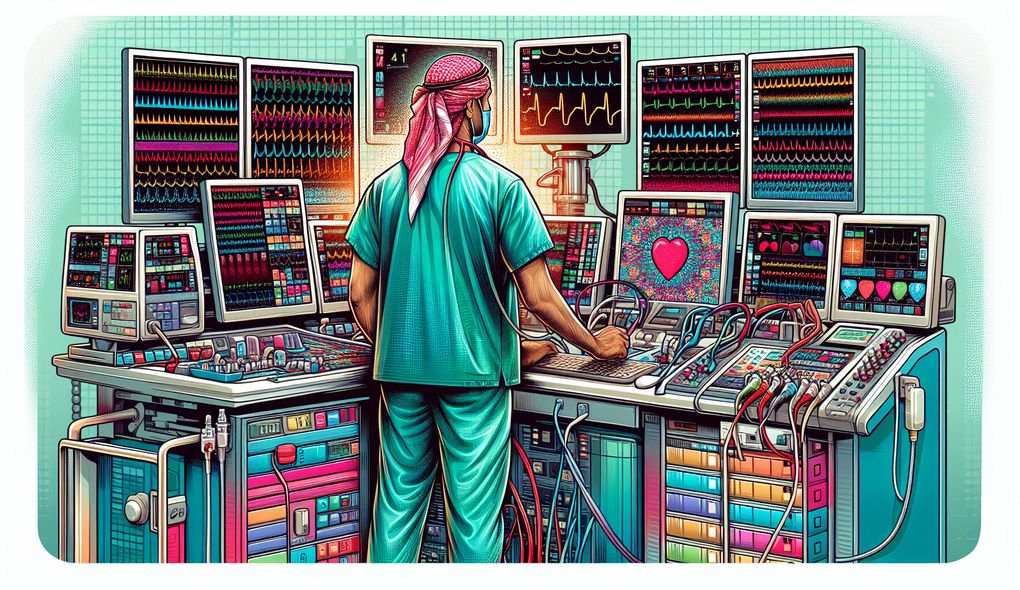Do you have any examples of instances where you had to respond to a medical emergency? How did you provide appropriate interventions?
INTERMEDIATE LEVEL

Sample answer to the question:
Yes, I have had instances where I had to respond to a medical emergency. One specific example was when I was working in a telemetry unit and a patient suddenly went into cardiac arrest. I immediately called a code blue and began performing CPR while waiting for the rest of the healthcare team to arrive. Once they arrived, I assisted in the administration of medications, defibrillation, and intubation. We were able to stabilize the patient and transfer them to the intensive care unit for further treatment. Throughout the entire process, I remained calm and focused, ensuring that the necessary interventions were provided in a timely manner.
Here is a more solid answer:
Yes, I have encountered several instances where I had to respond to a medical emergency in my role as a telemetry nurse. One particular situation stands out. I was monitoring a patient's telemetry data when I noticed a sudden drop in their heart rate and rhythm. Recognizing the seriousness of the situation, I immediately alerted the healthcare team and initiated appropriate interventions. I quickly assessed the patient's vital signs, performed a rapid assessment, and identified the need for immediate intervention. I administered medication to stabilize the patient's heart rate and synchronized cardioversion was performed. Through effective communication and collaboration with the team, we were able to restore the patient's normal heart rhythm and stabilize their condition. I documented the entire event, including the interventions performed and the patient's response, in their medical record for further reference and analysis.
Why is this a more solid answer?
The answer provides a more detailed example of responding to a medical emergency, specifically highlighting the candidate's clinical skills in cardiac care and ability to remain calm and efficient in high-stress situations. However, it can still be improved by providing more specific details about the interventions performed and the candidate's role in the overall response.
An example of a exceptional answer:
Absolutely! As a telemetry nurse with several years of experience, I have encountered numerous instances where I had to respond to medical emergencies and provide appropriate interventions. One memorable incident was when I received an alarm indicating a patient in ventricular tachycardia. I immediately rushed to the patient's room and assessed their condition. The patient was unconscious and pulseless, indicating cardiac arrest. Without hesitating, I initiated cardiopulmonary resuscitation (CPR) and instructed a colleague to retrieve the defibrillator. While waiting for the defibrillator, I continued high-quality CPR, ensuring proper chest compressions, and effective ventilation with the help of a bag-valve mask. As soon as the defibrillator arrived, I quickly attached the pads and delivered a shock. We were able to restore the patient's normal heart rhythm and regain spontaneous circulation. The patient was then transferred to the intensive care unit for further care. This experience highlighted my ability to act swiftly in high-stress situations, effectively perform life-saving interventions, and collaborate seamlessly with the healthcare team.
Why is this an exceptional answer?
The answer provides a detailed and impactful example of responding to a medical emergency, showcasing the candidate's clinical skills, ability to remain calm and efficient, and collaboration with the healthcare team. It highlights their ability to perform CPR, use a defibrillator, and effectively communicate instructions in a high-pressure situation.
How to prepare for this question:
- Review and refresh your knowledge of emergency protocols and procedures, including Advanced Cardiac Life Support (ACLS) guidelines.
- Familiarize yourself with the operation and functions of the telemetry monitoring systems commonly used in healthcare settings.
- Stay updated on the latest advancements in cardiac care and emergency interventions through continuing education and professional development opportunities.
- Practice scenarios and simulations to enhance your response time and decision-making skills during medical emergencies.
- Develop effective communication and teamwork skills to collaborate efficiently with the healthcare team during high-stress situations.
What are interviewers evaluating with this question?
- Clinical skills in cardiac care
- Ability to remain calm and efficient in high-stress situations

